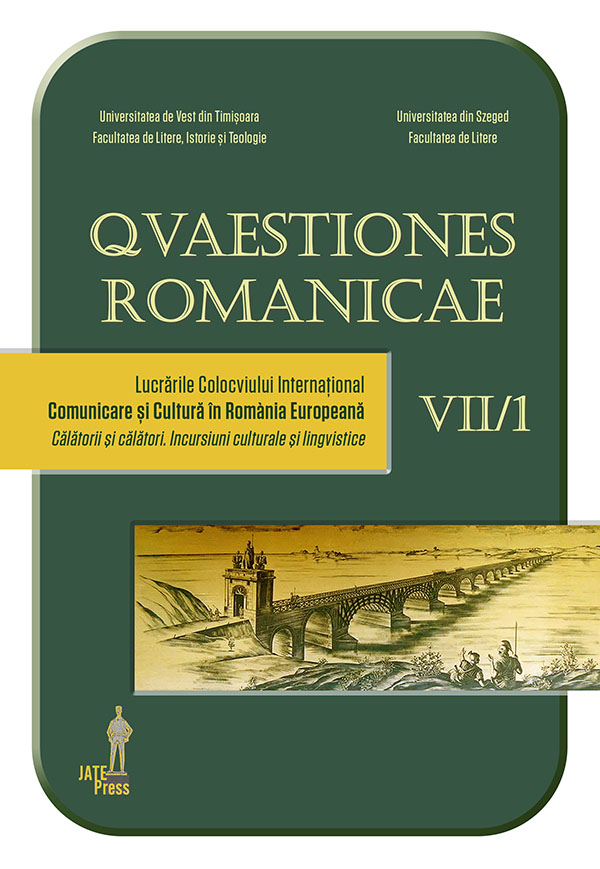La situación de los anglicismos en España e Hispanoamérica. ¿Préstamo o adaptación?
Abstract: (The situation of anglicisms in Spain and Latin America.Loan or adaptation?) In this article, we intend to present the state of Anglicisms in Spain as well as in Latin America. That is because we live in an era where English has grown into a language spoken worldwide and precisely for this reason it became a source of neologisms for nearly all languages. This is why linguists believe that it is best: adjust the word to the phonologic system of our language, preserve the original word form or try finding an equivalent in our own language. In the first part of the article, we will define the term Anglicism as close as possible to the definitions provided by dictionaries and linguists, next by presenting some classifications concerning them. Then we will continue discussing how Anglicisms are viewed in Spain and also understand why the Royal Spanish Academy is fighting to maintain the spirit of the Spanish language, rejecting the introduction of foreign words that are not adapted into Spanish, but attempting to find a Spanish equivalent rather than keeping the English form. On the other hand, in Latin America the opposite is happening: the English word is easily accepted, the English form is sometimes maintained due to the influence exerted by English and the United States on the countries of Latin America and the Spanish spoken in those territories. In the second part of the article, we will introduce a classification of Anglicisms according to their use, noticing which form is used in Spain and which one is used in Latin America, if there are huge differences and if Anglicisms sayings do appear in dictionaries.
Keywords: adjustment, Anglicism, Spanish, neologism, loanword.:
Resumen: En este artículo nos proponemos presentar la situación de los anglicismos tanto en España como en Hispanoamérica. Vivimos en una época en la que el inglés ha llegado a ser un idioma mundialmente hablado y por ello se ha convertido en una fuente de neologismos para cualquier lengua. Y es entonces cuando los lingüistas se plantean qué es mejor: adaptarlo al sistema fonológico de nuestro idioma, mantener la forma de la lengua de origen o buscarle un equivalente en nuestra lengua. En la primera parte del artículo definiremos el concepto de anglicismo teniendo en cuenta las definiciones que nos proponen varios diccionarios y lingüistas y luego presentaremos algunas clasificaciones de los anglicismos. Después nos proponemos hablar sobre el trato de los anglicismos en España y ver por qué la Real Academia Española lucha por conservar el espíritu de la lengua y se rechaza la introducción de extranjerismos no adaptados e intenta buscarle un equivalente en la lengua en vez de mantener la forma del inglés mientras que en Hispanoamérica sucede exactamente lo contrario: se acepta con facilidad la palabra inglesa incluso a veces se mantiene la forma del inglés, debido a la influencia que ejercen el inglés y los Estados Unidos sobre los países de América Latina y el español hablado en estos territorios. En la segunda parte del artículo presentaremos una clasificación de los anglicismos según su ámbito, veremos cuál es la forma en España y cuál en Hispanoamérica, si hay grandes diferencias e intentaremos averiguar si dichos anglicismos están registrados en los diccionarios.
Palabras clave: adaptación, anglicismo, español, neologismo, préstamo.
